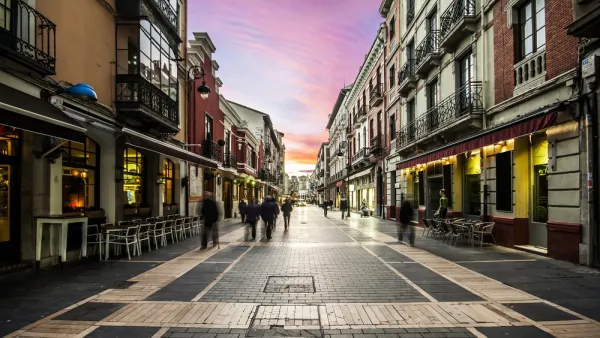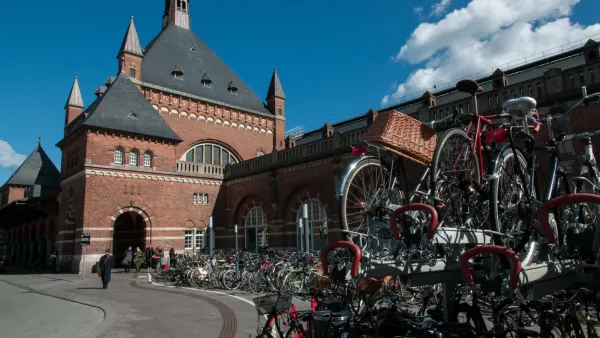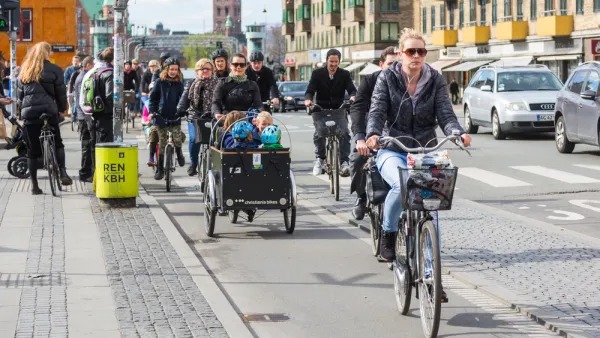Copenhagen wasn't always the "pedaler’s paradise" that it is today. Through the early twentieth century the Danish capital embraced the bike, but after WWII it experimented with American style development. How did the city get back on track?
John Greenfield discusses Copenhagen's history of multi-modalism with Danish Cyclists’ Federation director Jens Loft Rasmussen and project manager Mai-Britt Kristensen. Despite is global reputation for bike-friendliness, the path to pedaling paradise wasn't always clear. As Rasmussen describes: "When the bicycle was introduced in Denmark it became very popular. The Danish Cyclists’ Federation was founded in 1905. And during the Second World War you couldn’t get gasoline, so everybody used their bikes. But after the war we introduced the American lifestyle. In the Sixties people moved to new suburbs and kept their jobs in downtown Copenhagen. So how could they get from their new house in the suburbs to their job in central Copenhagen? In their car of course."
"The modal split in 1970 was about ten percent biking. [To put this in perspective, the mode share in Portland, Oregon, America's most bike-friendly major city, is roughly six percent.] But then we got the oil crisis. We had been totally dependent on gasoline from the Middle East and when it stopped the government had to introduce car-free Sundays. And then people realized that the car-free Sunday was the best day of the week, or some people did. They joined the Danish Cyclists’ Federation and there were huge demonstrations in Copenhagen. The attitude of the city government changed step-by-step from building highways to the center of Copenhagen to realizing that bicycling was a very important part of the transportation picture."
With the bike modal split at 35 percent currently, Rasmussen and Kristensen go on to describe how the city plans to expand its bike infrastructure and keep that share rising.
FULL STORY: Danish History: How Copenhagen became bike-friendly again

Analysis: Cybertruck Fatality Rate Far Exceeds That of Ford Pinto
The Tesla Cybertruck was recalled seven times last year.

National Parks Layoffs Will Cause Communities to Lose Billions
Thousands of essential park workers were laid off this week, just before the busy spring break season.

Retro-silient?: America’s First “Eco-burb,” The Woodlands Turns 50
A master-planned community north of Houston offers lessons on green infrastructure and resilient design, but falls short of its founder’s lofty affordability and walkability goals.

Test News Post 1
This is a summary

Analysis: Cybertruck Fatality Rate Far Exceeds That of Ford Pinto
The Tesla Cybertruck was recalled seven times last year.

Test News Headline 46
Test for the image on the front page.
Urban Design for Planners 1: Software Tools
This six-course series explores essential urban design concepts using open source software and equips planners with the tools they need to participate fully in the urban design process.
Planning for Universal Design
Learn the tools for implementing Universal Design in planning regulations.
EMC Planning Group, Inc.
Planetizen
Planetizen
Mpact (formerly Rail~Volution)
Great Falls Development Authority, Inc.
HUDs Office of Policy Development and Research
NYU Wagner Graduate School of Public Service




























